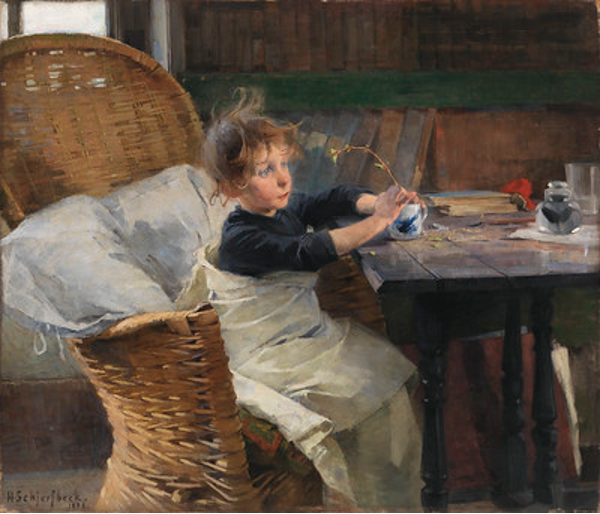by Avril Tynan
The progress and effectiveness of potential Covid–19 vaccines in the last few weeks have brought a new glimmer of hope to the closing months of 2020. While much of Europe remains under restrictions, or is tentatively emerging from a second lockdown, the new AstraZeneca-Oxford, BioNTech-Pfizer and Moderna vaccines are offering hope of future biomedical, social and economic recovery. Yet, as many of those who suffered from Covid-19 can attest, the process of recovery is uncertain, unsteady and unknown. Increasing attention to the ongoing effects of “long Covid” or post-viral fatigue syndrome amongst those who have suffered and apparently recovered – from a clinical perspective – from Covid–19 emphasises the ambiguous future that lies ahead. Similarly, our increasingly optimistic discourses of social and economic recovery overlook the almost inevitable effects of “long Covid” on our futures. Although soon we may no longer live with the physically manifested symptoms of the disease, we will continue to inhabit an ambiguous, post-viral in-between that fails to offer the cathartic notions of progress or advance we associate with full recovery.
To speak of a recovery from the Coronavirus pandemic is mistaken and misleading. Our future will not be one in which recovery is immediately – or perhaps ever – achieved; instead, our future is convalescence, “a time in which one does not, in the manner of accomplishment, enter a state of health; rather, it concerns a time of getting over in which the source of the illness never really withdraws completely.”[1] In our fraught contemporary lives, this stage of illness is frequently conflated with recovery if not overlooked completely, reminiscent instead of late 19th– and early 20th-century tuberculosis sanatoria in the Swiss Alps (famously described by Thomas Mann in The Magic Mountain) that are incompatible with a desire – and often a necessity – to resume “normal life” after a period of severe illness. Yet the state of convalescence offers an appropriately cautionary sense of a more realistic future world in which complete recovery is always deferred.

As Barbara Spackman suggests, “convalescence is a space in-between”, an ambiguous site in which symptoms of both health and illness intertwine and commingle.[8] Convalescence, therefore, and particularly the convalescence of Coronavirus, can be better understood as a hermeneutic that does not forget or leave behind the experience of illness but incorporates it in the ongoing life of understanding. Following James Risser, convalescence “indicates that the recovery is a matter of a recovering in which the recovery itself remains outstanding”.[9] Risser argues that in the postmodern condition of hermeneutic convalescence we do not overcome the past of illness but rather overcome “the very idea of overcoming” and challenge modernist notions of permanent progress and advancement: “in its mode of convalescence hermeneutics cannot produce a new age; it cannot turn over to a new beginning”.[10] We cannot speak, therefore, of a recovery from Coronavirus – be it individual or collective, medical, social or economic – but rather of a state of convalescence in which recovery itself remains always in abeyance.
Adopting a hermeneutics of convalescence now will prepare us for the continued embeddedness of Covid–19 in our everyday lives and interactions even after the disease itself has been controlled or even eradicated. We must learn now to accept that we may never overcome the unprecedented events of this year in the sense that we may never completely move on from the personal, social and economic devastation, but the process of convalescence itself will reaffirm life even as it perpetuates the absence of recovery.
Bio: Avril Tynan is a postdoctoral researcher in comparative literature at the Turku Institute for Advanced Studies in Finland. Her work examines the roles of narrative and ethics in the representation of ageing, illness and death. She is the co-organiser of the SELMA Medical Humanities Seminar Series.
_______
[1] James Risser, “On the Continuation of Philosophy: Hermeneutics as Philosophy,” in Weakening Philosophy: Essays in Honour of Gianni Vattimo, ed. Santiago Zabala, 184–202 (Montreal: McGill-Queen’s UP, 2006), 187–88.
[2] Barbara Spackman, Decadent Genealogies: The Rhetoric of Sickness from Baudelaire to D’Annunzio (Ithaca: Cornell UP, 1989), 42.
[3] Spackman, Decadent Genealogies, 38.
[4] Paul de Man, “Literary History and Literary Modernity,” Daedalus 99, no. 2 (1970): 384–404 (396).
[5] Charles Baudelaire, The Painter of Modern Life and Other Essays, trans. and ed. by Jonathan Mayne (London: Phaidon, 1965 [1863]), 7.
[6] Graeme Mercer Adam and Agnes Ethelwyn Wetherald, An Algonquin Maiden: A Romance of the Early Days of Upper Canada (Toronto: U of Toronto P, 2019 [1887]), 88.
[7] Risser, “On the Continuation of Philosophy,” 190.
[8] Spackman, Decadent Genealogies, 58.
[9] Risser, “On the Continuation of Philosophy,” 188. See also James Risser, The Life of Understanding: A Contemporary Hermeneutics (Bloomington: Indiana UP, 2012).
[10] Risser, “On the Continuation of Philosophy,” 193.